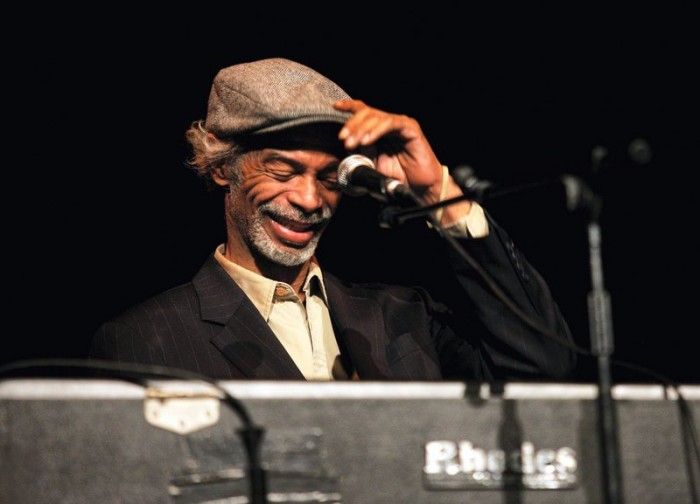Way back in the mid-70’s the music played on shows like Saturday Night Live represented the same sort of off-beat, out of the mainstream approaches as the show itself. In contrast to the Katy Perry/Lady Gaga/Bruno Mars list of generic corporate-rehash pop ‘Johnny Bravos’, you could hear Leon Redbone, Frank Zappa, Betty Carter, Captain Beefheart, Keith Jarrett, Sun Ra and his Arkestra, and on and on. Really creative music that crossed cultural and musical boundaries instead of the latest ‘pop trash’.
And on one night in late 1975, with Richard Pryor hosting, a guy named Gil Scott Heron came on and sang a song that has stuck with me for the last 35 years: Johannesberg. It is a powerful song about South Africa and the injustice there more than 15 years before pretty much anyone else seemed to care. It is also a great song with a catchy hook. You can see about 30 seconds of it here.
Here is Johannesberg from Feb 1976, soon after I saw him perform it live on SNL:
But as noted in the New York Times obituary, his influence was massive and in many ways led to the styles that have grown into rap music:
Mr. Scott-Heron often bristled at the suggestion that his work had prefigured rap. “I don’t know if I can take the blame for it,” he said in an interview last year with the music Web site The Daily Swarm. He preferred to call himself a “bluesologist,” drawing on the traditions of blues, jazz and Harlem renaissance poetics.
Yet, along with the work of the Last Poets, a group of black nationalist performance poets who emerged alongside him in the late 1960s and early ’70s, Mr. Scott-Heron established much of the attitude and the stylistic vocabulary that would characterize the socially conscious work of early rap groups like Public Enemy and Boogie Down Productions. And he has remained part of the DNA of hip-hop by being sampled by stars like Kanye West.
“You can go into Ginsberg and the Beat poets and Dylan, but Gil Scott-Heron is the manifestation of the modern word,” Chuck D, the leader of Public Enemy, told The New Yorker in 2010. “He and the Last Poets set the stage for everyone else.”
Here is the classic and massively influential ‘The Revolution Will Not Be Televised’
He was a visionary and will be missed.

